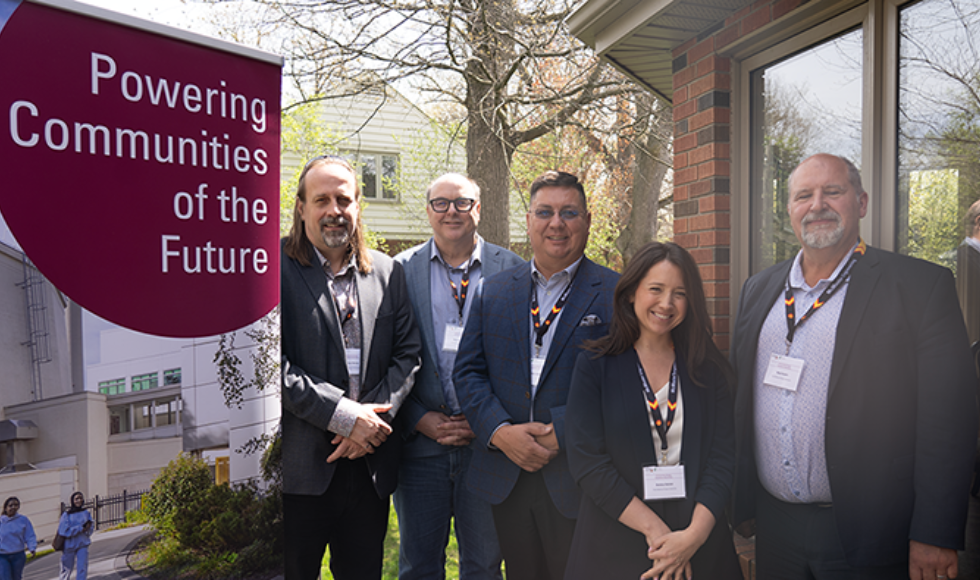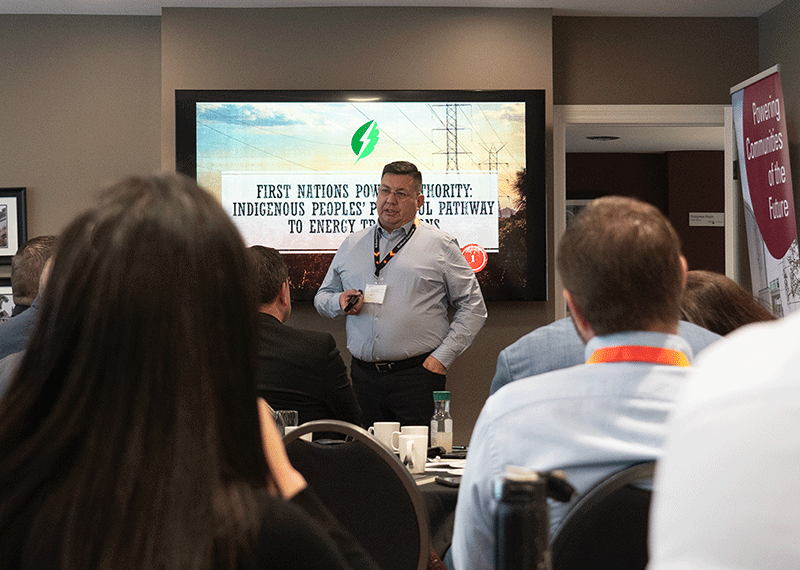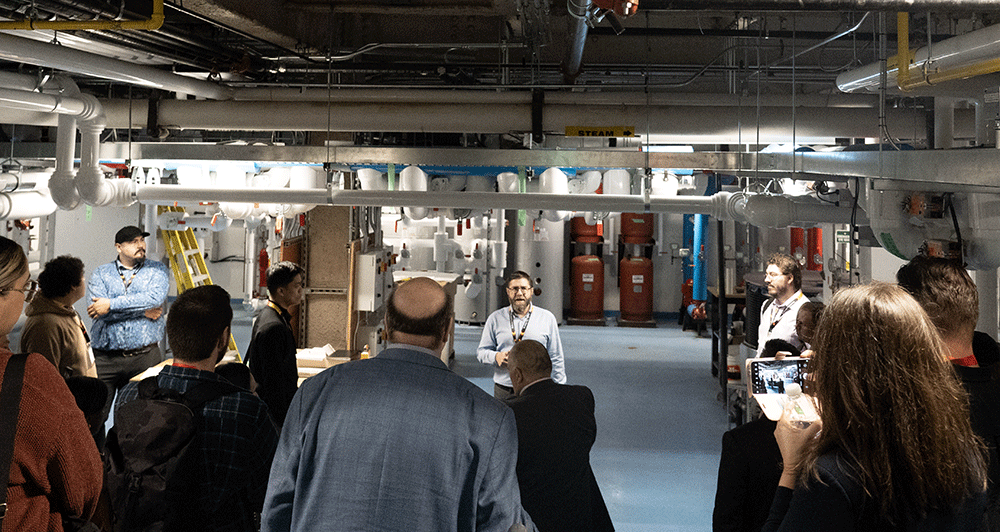Energy transition workshop explores meaningful engagement between researchers, Indigenous communities and industry

From left to right: Dave Novog, Professor of Engineering Physics at McMaster University, Darren Huculak, Project Advisor, First Nations Power Authority (FNPA), Chief Guy Lonechild, CEO, FNPA, Bobbie Balicki, Project Advisor, FNPA , Noel Voykin, Project Advisor, FNPA
May 23, 2024
As Canada and First Nations look to a future of achieving safe, reliable and zero-emission energy, collaboration with residents from northern and remote communities is key to exploring viable and long-lasting solutions. The need to build relationships and mutual understanding inspired a two-day Community Energy Transition Workshop at McMaster University on May 6 and 7.
The workshop was delivered by a team of McMaster staff and researchers, led by Engineering Physics professor Dave Novog, whose expertise is in new and existing nuclear deployments, safety and developing advanced tools for reaction monitoring and inspection.
McMaster and its co-host, First Nations Power Authority (FNPA), welcomed 50 attendees from Indigenous communities, government labs and academia across Canada.
Evolving the relationship between energy and the environment
“Energy and the environment have not always existed in harmony,” said Novog.
“We know how crucial meaningful engagement with Indigenous communities will be in a successful transition to clean and secure energy in Canada. Open dialogue is the beginning of a path toward collaboration and robust partnerships.”

Indigenous communities provide valuable knowledge as a culture deeply rooted in the environment, explains FNPA CEO, Guy Lonechild. “The importance of bridging Indigenous and non-Indigenous communities through technological innovation to pave the way for a cleaner and sustainable future has never been more important than right now.” Stressing an environment-first approach, FNPA advocates for prioritizing environmental preservation over purely economic interests.
“Universities are the perfect landscape to bring people together as a place of education, research and industry relations, representing the original stewards of lands and resources in what we now know as Canada,” says Lonechild.
With a new social strategy that incorporates Indigenous knowledge, FNPA envisions a collaborative effort that includes universities as hubs for meaningful and impactful collaboration.
Change required on a national scale
Discussions at the workshop centred around electrification goals in Canada, including achieving net-zero emissions and decarbonization. As communities consider their existing and future energy needs, it is imperative to consider each community’s specific development plan and goals. The support of governmental bodies through investments at federal and provincial levels is poised to drive this movement forward.
Bobbie Balicki, FNPA Project Advisor, shared her research insights – a case study in Northern Saskatchewan – focused on holistic valuation of economic and non-economic costs and benefits of a transition from diesel fuels. Emphasizing the significance of meaningful engagement with Indigenous communities, Balicki emphasized the value of trust-building, mutual respect and educational initiatives in the exploration of alternative energy sources.
The pathway to a sustainable energy future in remote communities involves addressing fundamental community needs like housing, clean water and affordable heating. FNPA’s strategy prioritizes infrastructure development as a foundational step in development planning and aims to create energy-rich communities that cater to both current necessities and future growth.
“As a country, there is nowhere to go but forward in our pursuit of a sustainable future in energy, and we as Indigenous people need to be involved,” said Chief Jon Pasap of White Bear First Nations north of Carlyle Saskatchewan.
Visiting campus energy research hubs
Workshop guests had the opportunity to tour campus facilities, including Professor Jim Cotton’s ICE Harvest Lab where energy systems synergize to provide stable electricity, heating and cooling, and the McMaster Nuclear Reactor, Canada’s most powerful research reactor and the country’s primary neutron source.

“The engagement and sustained energy in the room over two days signalled a promising future for partnerships and collaboration,” says Novog. “The will is there to pursue transition in meaningful, community-centric ways and McMaster is committed to partnerships that drive this work forward.”
Learn more about Research and Innovation at McMaster Engineering.


